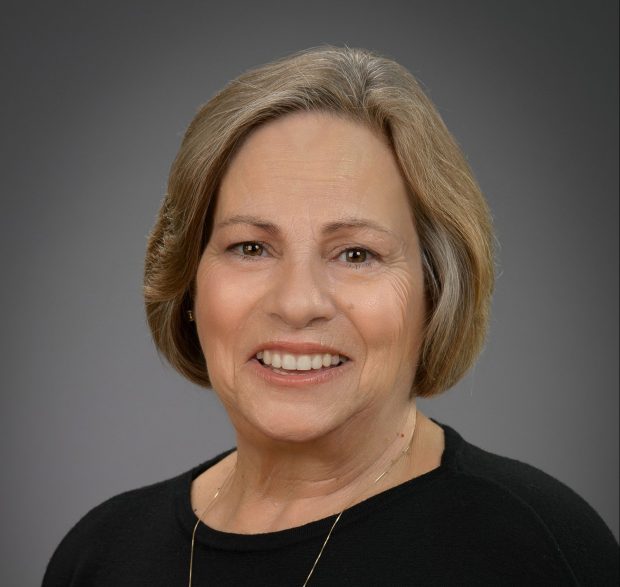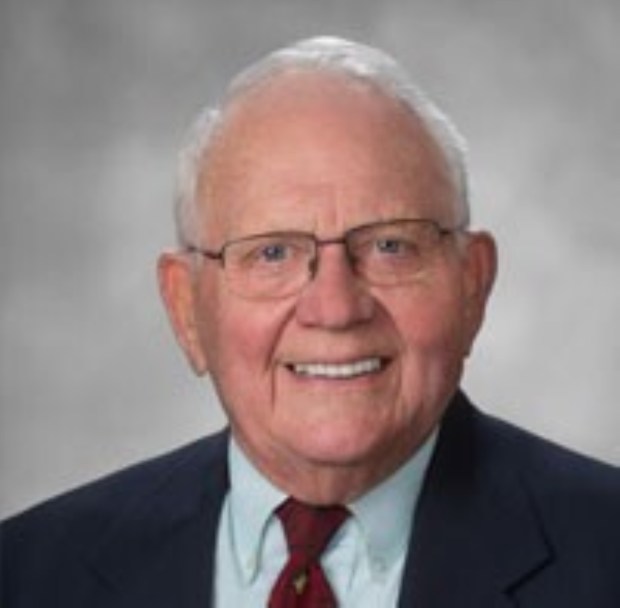This is one in a series of stories looking at contested races in the Aurora area in the Nov. 5 election.
The race for a seat on the Kane County Board in District 2 in the fall election is between incumbent Democrat Dale Berman and Republican challenger Ellen Nottke.
The general election is set for Nov. 5.
Berman, 90, of North Aurora, is seeking his second term as a board member and said that issues in the district include concerns about county finances, mental health and transportation issues.
Finances, Berman said, are “a concern as people say we spend too much money in the county.”
“People are worried about increases in taxes and that’s true, but only a small amount goes to the county. We get just 4% of what you pay in real property taxes,” he said. “We’ve not had an increase in the county in 14 years and have been going down on our reserves to balance the budget, and we need to come up with a new revenue source.”
To that end, he pointed to the board approving a 0.75% sales tax referendum question to be placed on the ballot in April’s consolidated election.
Improving mental health care in the county, Berman said, “requires a real change in our mental health requirements.”
“There is more of a demand and COVID has made a great change in our lives – we see that in our children and anxiety and there are more mental health problems now,” he said. “We look at our jails and most of the people causing problems there have mental health problems.”
Transportation issues, he said, involve “concerns about the time it takes to move from here and there” as well as the means to get to transportation hubs themselves.
“I think we need better roads and a way to get to our transportation centers like Geneva or Aurora,” he said.
If re-elected, Berman said his goals would include continuing his work as the board’s Finance Committee chair, building a stronger unity among board members and focusing on future needs.
“I’ve been chairman of the Finance Committee for four years and we’ve come up with a balanced budget. Finances are my biggest issue and I think I have the knowledge and experience to do this well,” he said.
Berman said he wants to build more unity on the board, saying there are “24 board members and we need to work together.”
Berman also wants to see more planning “as we really need to know what we’re going to see, and what we’re going to need down the road.”
Nottke, 70, of Batavia, said in talking to residents, concerns in the district include immigration, the cost of living and taxes.
The cost of living, including things like groceries and utility costs, “is something that the county can’t control,” Nottke said, adding that people are saying “they can’t afford everything and have to decide what I want to buy this month.”
“It’s like, do I want to buy the drugs I need this month or do I want to buy food,” she said. “I think that’s the biggest problem everybody has from families to the elderly.”
Regarding taxes, Nottke said the county makes up a small part of the tax bill.
“First of all, there is such a small portion of your taxes you pay to Kane County. You make your check to the treasurer but it’s less than four cents on every dollar,” she said. “People don’t understand their taxes and don’t realize (school districts are) the biggest chunk of it.”
Regarding immigration, Nottke said despite it being a national problem, “people want something done at the border.”
If elected, Nottke said “the biggest thing this county needs to do is to get these meetings in order.”
“We need to reorganize these meetings and do away with these Zoom meetings,” she said. “You shouldn’t be able to vote from home. You were elected and you need to be there.”

Nottke added that the opioid crisis in the county “is serious.”
“The coroner has exhibited extraordinary leadership and they have made great strides in public education but I think that education begins with the families and we need to get them involved as a part of the first step,” Nottke said.
A third goal involves housing as “people think in this area we should provide affordable housing in this region and the existing infrastructure and state law effectively requires affordable housing to be addressed by the individual municipalities and not by the county board,” she said.
“People don’t understand that and we need to educate what the county can do versus the municipality they live in,” she said.
David Sharos is a freelance reporter for The Beacon-News.




